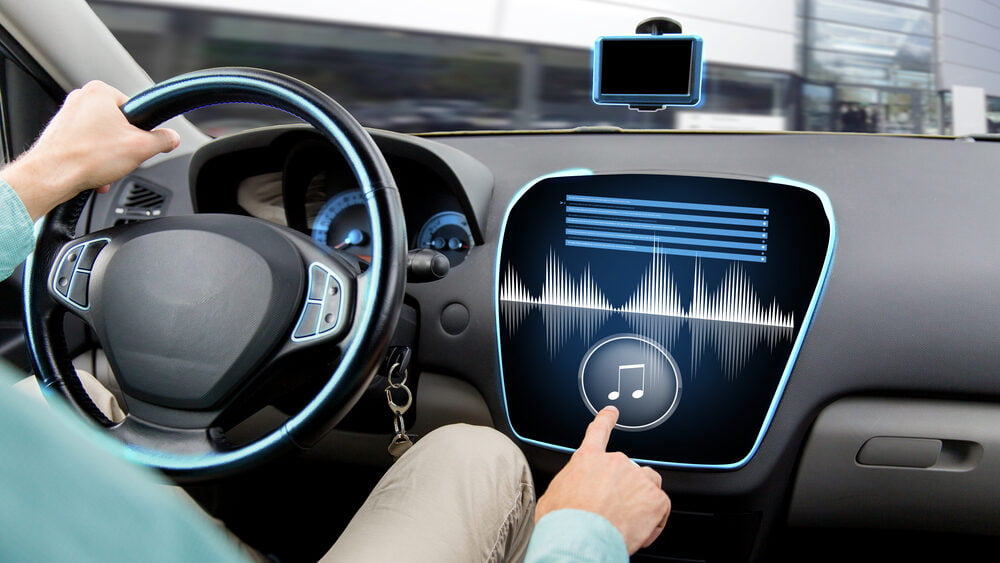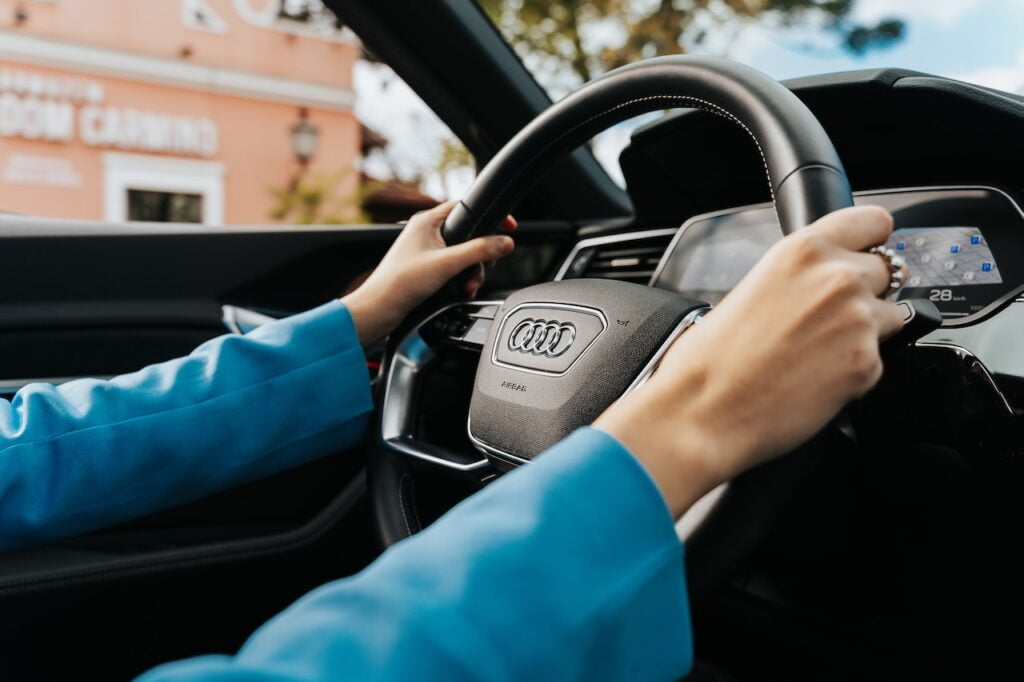The solution to reducing stress on Israel’s jam-packed roads and highways may be in the palm of your hand.
A team of Israeli researchers seeking stress management solutions for the country’s drivers have created a new index that uses the tightness of your grip on the wheel to calculate your stress levels.

And the team – from the Department of Industrial Engineering and Management at Ariel University – believe that your car is key to keeping you calm as well, by changing the environment in your vehicle in response to your mood.
The index uses 60 sensors in the steering wheel to calculate your stress levels based on how tightly you hold onto it (grip force) and how much sweat you produce while driving.
Israel is notoriously demanding of its motorists. In a 2018 Waze survey of Israeli drivers, 79% said that traffic is the largest cause of stress in their everyday life.
The Mayo Clinic links unmanaged stress levels to negative mental and physical health effects, such as high blood pressure, heart disease, anxiety, and depression.

Fight Or Flight
The index is the brainchild of Yotam Sahar, a doctoral student in Industrial Engineering and Management at Ariel, who led four studies on measuring and managing driver stress as a part of his PhD dissertation.
“Stress is one of the factors that most affects human performance,” he tells NoCamels.
His focus, he says, was “the disconnect between the physiological part and the psychological parts of stress – the relationship between the body and the mind.”

Sahar based his research around the concept that the relationship between stress and human performance is not linear, and that too little or too much stress can both have an adverse effect on driving capabilities.
He tells NoCamels that lower levels of stress during driving can trigger more apathetic feelings such as drowsiness, distractedness, and depression.
High-stress levels, meanwhile, are based on “flight or fight” responses, and manifest in ways including road rage and anxiety.
All of these subconsciously affect your focus and reaction time in just the same ways while driving, which could prove disastrous.
“Road accident investigation and observational studies indicate that about 90% of all road accidents result from human error,” says the study by Sahar and his team, which was published in the International Journal of Environmental Research and Public Health.
Sahar sought to create an index that incorporated both physical and psychological responses in order to most accurately devise stress management tools.
One of his experiments, for example, measured the reactions of 39 participants in a simulation when a pedestrian unexpectedly crossed the road, first at a distance and then in close range.
Sign up for our free weekly newsletter
Subscribe“To improve road safety, it is essential to recognize the factors affecting driver performance, specifically factors that can be moderated to improve driver performance and road safety,” according to Sahar’s study.
He says that there is no other research of this kind in Israel of which he is aware and in fact claims that the whole subject is underrepresented worldwide.

Sahar says he realized he could measure stress through grip when he heard Israel Air Force pilots say that their fingers were white when they came out of stressful flights, something he calls “white finger syndrome.”
He says he understood that, “if we can measure the grip force, we can maybe measure stress.”
Calming Cars
According to Sahar, the research will provide valuable data to carmakers and potentially pave the way for future safety systems that use the car itself to calm the driver.
These, he suggests, could include an interface system in vehicles that uses biofeedback (controlling bodily functions such as heart rate and breathing) to help drivers to regulate their state of mind, stress and anxiety levels and avoid accidents.

So when the driver’s grip on the wheel is strong, the car could automatically adjust temperature controls to cool the environment and maintain a mild temperature, as heat has been linked to increased stress and anxiety.
Other adaptable features could include the car automatically playing soothing music and even bringing in chatbots to function as makeshift therapists on the move.
“Our idea is to let the computer of the car, when it knows how stressed you are as a driver, to utilize abilities of its own in order to help you,” he says.
Sahar also gives the example of how the car could respond to a driver whose stress levels have clearly been elevated by a near miss on the road, reducing the demands on the person behind the wheel by taking over acceleration and lane changes.

Inversely, he says, the car could act to invigorate a person whose stress levels are too low and need to be more alert in order to navigate the demands of city driving.
“The car needs you as a human driver, and may give you tasks. It does everything autonomously, but it will force you to take the wheel and be engaged in order to wake you up,” he explains.
According to Sahar, his team has reached out to international carmakers who have R&D centers in Israel, including Renault, Nissan and Mitsubishi. They also made contact with the country’s National Road Safety Authority.
“We are trying to do this in the real world,” he says.
Related posts

Editors’ & Readers’ Choice: 10 Favorite NoCamels Articles

Forward Facing: What Does The Future Hold For Israeli High-Tech?

Impact Innovation: Israeli Startups That Could Shape Our Future




Facebook comments